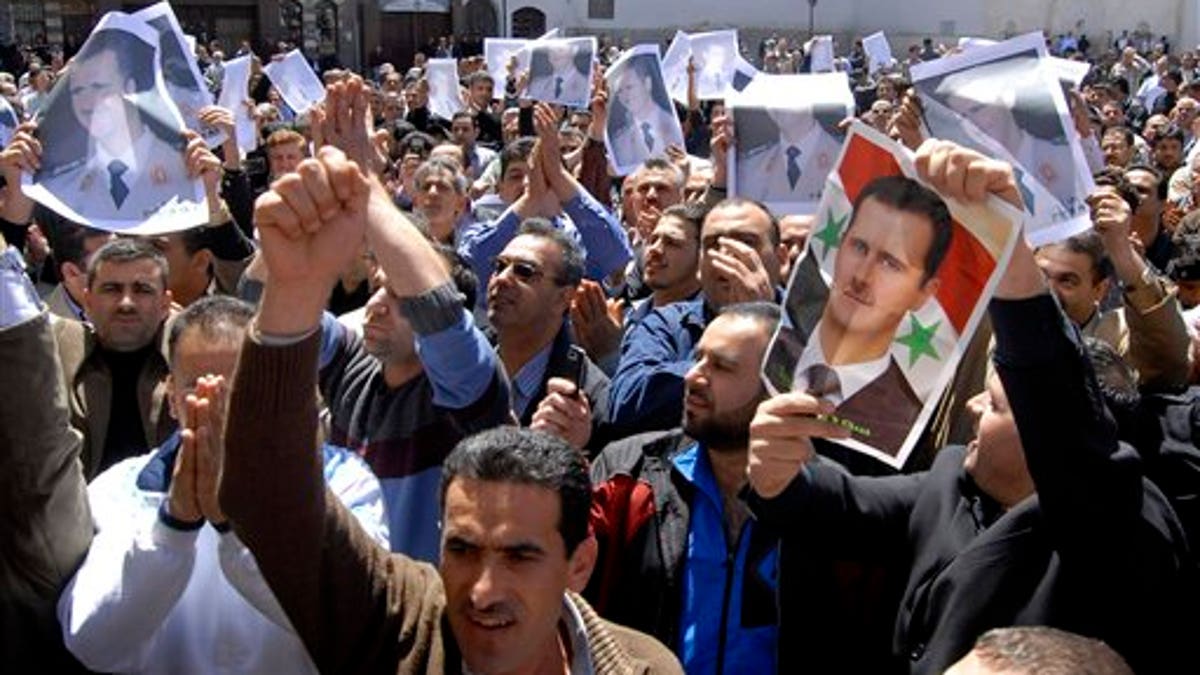
April 15: Syrian pro-government protesters carry pictures of Syrian President Bashar Assad as they shout slogans after Friday prayers outside the Omayyad Mosque in Damascus, Syria. (AP) (AP2011)
BEIRUT -- Syria's president said Saturday he expects the government to lift a state of emergency that has been in effect for nearly 50 years, a key demand by a monthlong protest movement that has posed the most serious challenge to the country's authoritarian regime.
In his second public appearance since the protests began, President Bashar Assad warned there will no longer be "an excuse" for organizing protests after Syria lifts the emergency laws and implements reforms.
"After that we will not tolerate any attempt at sabotage," he told the newly formed Cabinet in a televised address.
Syria's widely despised emergency laws have been in place since the 1960s, giving the regime a free hand to arrest people without charge and extending state authority into virtually every aspect of Syrians' lives.
The protest movement has been steadily growing over the past four weeks and swelled Friday to the largest and most widespread gatherings to date as tens of thousands of people made a bold march toward the capital, Damascus.
The protesters demanded concrete reforms even as Assad's security services launched a bloody crackdown. More than 200 people have been killed in the government crackdown on protesters over the past four weeks, rights groups say.
Assad has tried to calm the protests with promises of reform, such as forming committees to look into replacing the emergency laws and freeing detainees. He also sacked his Cabinet -- a move that was largely symbolic, as the real power in Syria is concentrated around Assad and a tight coterie of family and advisers.
The protesters say the gestures are not nearly enough.
Syria's government and its state-run media have sought to cast the unrest as a foreign conspiracy perpetrated by armed gangs targeting security forces and civilians. Reform activists, however, say their movement is peaceful.
In his speech Saturday, Assad took on a much more conciliatory and serious tone than in his previous speech on March 30, when he failed to announce any clear-cut changes and blamed the protests on a foreign conspiracy.
While reiterating that much of the violence in Syria was the work of a foreign conspiracy, he acknowledged Saturday that Syrians have legitimate grievances and an urgent need for reform.
